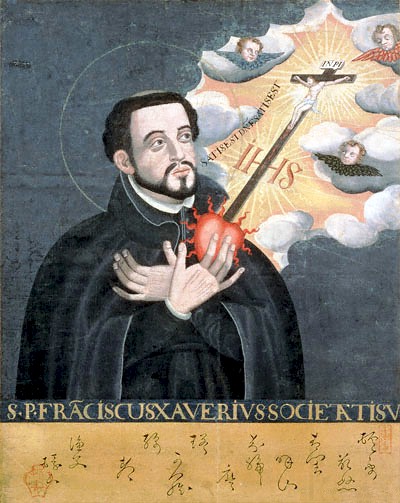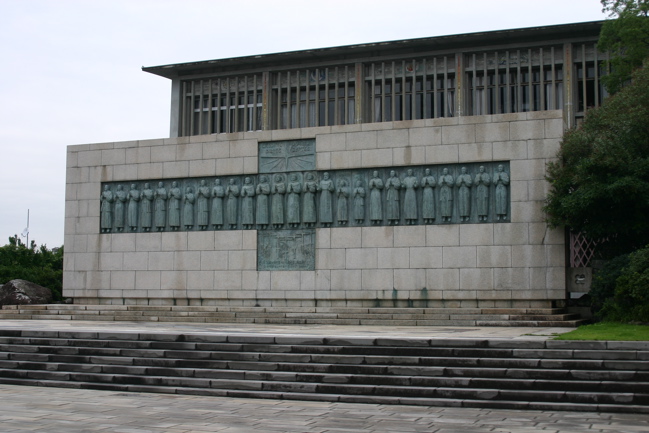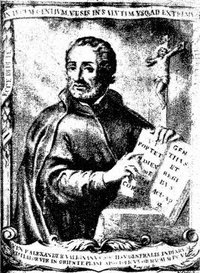Inoue Hisashi
Translated and introduced by Roger Pulvers
Introduction
When I first read Inoue Hisashi’s novel My Friend Frois in “All Yomimono” magazine some 25 years ago, I was immediately taken with its importance as a recreation of Japanese history. As always with Inoue’s work, what also struck me was his erudition, insight and wit.
I asked him for permission to translate the novel and he granted it. I was working at the time as literary editor at the Mainichi Daily News, editing a weekly page of cultural pieces called Monday Arts. I was fortunate to have an array of creative people writing for the page that included Inoue, Betsuyaku Minoru, Tanikawa Shuntaro, Shiraishi Kazuko, Tamura Ryuichi, Ibuse Masuji, Oshima Nagisa (who wrote a regular movie column), Kara Juro, Noda Hideki, Sakamoto Ryuichi, Murakami Haruki, Ninagawa Yukio, Tsuka Kohei, among others. Someday it would be wonderful to put together a book comprised of the articles written by these people for the Monday Arts page of the now defunct Mainichi Daily News.
I serialized My Friend Frois on the Monday Arts page; yet, for many years regretted that we were unable to publish this marvelous novel in book form.
After Komatsuza published the bilingual edition of Inoue’s play about Hiroshima, Chichi to Kuraseba (The Face of Jizo), [1] I approached Watanabe Akio, head of Inoue’s theater troupe, Komatsuza, about the publication of My Friend Frois. To my joy, he gave the nod; and the book was published in December 2007.
The novel explores the life and times of the 16th-century Portuguese missionary, Luis Frois. It is composed of a series of letters to and from Frois. Hideyoshi was uniting Japan during this turbulent period that is referred to as the Sengoku Jidai, or Period of the Warring States. He met Oda Nobunaga himself and witnessed many of the events that shaped what was to become Japan for some 250 years.
Frois, given the name Policarpo, was born in 1532. He became an apprentice scribe in the Secretaria Real (the Royal Secretariat) in Lisbon, and in 1548, age 16, entered the Society of Jesus there, taking the name Luis. In March of that year he departed for India, arriving in Goa in October. He was never to see his family again. He soon met Father Francis Xavier, as well as a Japanese convert from Kagoshima named Jiro.
 Japanese portrait of Francis Xavier
Japanese portrait of Francis Xavier
Frois worked for some years under the Provincial of India as the person in charge of reporting on East Asia to the church in Europe; and in 1563, age 31, he arrived in Japan for the first time, at Yokoseura, Nagasaki.
In 1565 Frois journeyed to Kyoto, but with the downfall of his protector, Shogun Ashikaga Yoshiteru, he was forced to take refuge in Sakai. It was in 1569 that he met Nobunaga at Nijo Castle and received permission to proselytize.
He spent the ensuing years in missionary work while writing The History of Portuguese Territories in East India.
In 1581, in the capacity of interpreter, he accompanied Visitor General Alessandro Valignano on the latter’s travels in Japan, and was welcomed in Kyoto and Azuchi by Nobunaga. Nobunaga died the following year.
In 1583, at age 51, Frois began writing his History of Japan on the order of Vice Provincial of Japan Gaspar Coelho. Part One of the history was completed in 1586. In that year, Frois traveled to Arima, Amakusa, Nagasaki, Ohmura, Hirado, Sakai, Osaka and Kyoto in the company of the Vice Provincial.
Hideyoshi promulgated the edict on the expulsion of the missionaries in 1587, and Frois was given this order by his envoy. From then on, Frois devoted himself to writing his history.
In 1590, at age 60, Frois was sent to Macao, accompanying Visitor General Valignano. Three years later he returned to Nagasaki; and two years after that, in 1597, the persecution of Christians began in earnest in Japan. Frois’ last report was on the fate of the twenty-six martyrs crucified in Nagasaki.
 Front of the twenty-six martyrs museum, Nagasaki
Front of the twenty-six martyrs museum, Nagasaki
That year—1597—Frois died at the church in Nagasaki.
* * * *
After I began work on the translation, I phoned Inoue to ask for some help. I was having particular trouble with Portuguese names—of people, ships, etc. These were naturally in katakana in the novel, and I had no easy way of finding out how to write them in Roman letters. Oh for an internet then!
A few days later a tall cardboard box, about the size of two large boxes, arrived by courier at my home in Soshigaya Okura. It was full of books about Portugal, missionaries and Japanese history. All of the books had little markers throughout, indicating places that Inoue himself had used for reference. He had actually read all these books to write what is essentially a novella. I was floored.
I phoned again to thank him.
“Would you like more materials?” he asked. “I only sent you about one-third of what I used to write the book.”
“No, no!” I gulped. “That’s enough!”
The excerpt of My Friend Frois that appears here is made up of three letters. The first is from Frois to Father Gaspar Vilela in Nagasaki. Frois was in hiding in Sakai after the Shogun was murdered at the instigation of Matsunaga Danjo, a merchant with grandiose ambitions of his own. The Tendai Sect took the opportunity to petition the Imperial Court to banish Frois and Vilela.
In the first letter, Frois speaks of rumors that Nobunaga may seize power and that this may be a chance for the padres to make a comeback to the capital, Kyoto. He goes on to tell Vilela of his impressions of Japan, of what a “bizarre land” it is.
In the second letter, Vilela replies to Frois, who, in turn, in the third letter here, writes back…
What a bizarre land this is! We give our lives preaching the truth to these people, and yet so few of them take it to their hearts. Our results are slight. It is infuriating. No, even more than that…this is a country seen in a mirror, where everything is backwards compared to Europe. I doubt that the Word of God will ever take root in such strange soil.
In Europe we do not go around assassinating rulers; or if we do it is condemned outright. But in Japan, where everything is the opposite, the killing of a ruler is a routine matter, and it proceeds without a murmur of condemnation. The murder of a new-born babe in Europe is virtually unheard of, while in Japan, where everything is topsy-turvy, babies who are considered a burden to raise are choked to death by the pressing of a foot against their throat. In Europe killing a human is a sin, while killing a cow or a chicken is not, whereas in Japan, where everything is reversed, people are horrified by the sight of an animal being slaughtered, while they don’t blink an eye at the murder of a man. Europeans normally call upon the house of a person without bringing anything for them, while here in the land of the contrary, it is considered disgraceful to visit without a present. We Europeans deem it filthy to catch a fly with our hands, while in back-to-front Japan even lords and tycoons pick them off in the air, pluck their wings off and toss what’s left aside. In Europe people of rank ride in the stern of the ship, while in wrong-way-around Japan, they ride in the prow. Thus do people of rank get royally soaked. European boatmen row sitting down in silence; Japanese boatmen row standing up, singing constantly.
Europeans have big noses which they clean with their thumb or forefinger; Japanese clean out their nostrils with their little finger. Europeans dance in big, grand steps; Japanese dance sluggishly, as if searching for something they dropped on the floor. We Europeans do not imbibe more than we desire, nor are we persistently forced to drink by others; Japanese press liquor upon each other with an exceeding persistence…some regurgitate, others merely pass out. When we count the hours, we do it in order, such as one, two, three, four, five and so on up to twelve; whereas the Japanese who turn everything inside out, count six, five, four, nine, eight, seven…in just such a senseless order. We give our women the names of saints; in vice versa Japan, the women are called, for example, Cookpot, Crane, Turtle, Inkbrush and Tea. We write with twenty-two letters; they use an almost infinite amount of characters to write with. We avoid vague expressions, while they set high value on the ambiguous. We sew up a wound where they paste a piece of paper on it. Our ink is liquid, but theirs is a lump of black stone. We write letters at great length, while they write brief ones. We sit down in the toilet, while the Japanese who do everything the wrong end up, squat. Our great Father Xavier once said…
“The Society of Jesus will be able to accomplish very substantial work in this country.”
But can truth take root as truth in a land that itself is upturned? I am sorry to say, I cannot help but question it.
Father Vilela’s reply comes swiftly, with twenty momme of silver inside.
I have entrusted the enclosed twenty momme of silver to a merchant of reliable character who is on his way to Sakai from Nagasaki. Please maintain your strength by consuming plenty of fish and beans.
Yes, Japan may certainly appear like a land seen in a mirror. There are any number of fashions and customs here which are like those of Europe turned around. But Padre Frois, take out a mirror and have a look in it. What you see is, indeed, reversed right to left; but does the world appear upside down? For a hundred countries there are a hundred ways of doing things. Yet in every one of those countries, with morning comes the rising of the sun in the east. There is no reason why truth should not take root in this country. What is most important is to believe in God’s works.
I respond very favorably to the Japanese fashion of keeping letters brief, and so hereby close this letter.
There is no night that is not broken by the dawn, no tide that does not ebb. The circumstances for missionary work improved in Kyoto as a result of Nobunaga’s ascension to power. And so, seven of the most splendid years of Luis Frois’ life follow. In the second autumn after his having moved from Sakai to Kyoto, Frois writes a letter to the newly-appointed Vice Provincial in Japan, Francisco Cabral, who is in Shiki-at-Amakusa.
I believe that I am the only Jesuit priest resident in Japan who has yet to meet you. May I take the liberty of greeting you with this letter. I am sure that you already possess much knowledge about the Ruler of Owari, Nobunaga. He is tall and thin, the possessor of a powerful voice, a shrewd strategist and a confirmed nondrinker…something rare for the Japanese…and he has taken quite a liking to me and Irmao Lorenzo. Nobunaga delights in wearing the velvet hat that I gave him. Whenever I meet him he treats me to delicious dried persimmons from Mino; and some time ago he invited me to visit his residential castle in Azuchi. The prosperity of his realm rivals that of Babylon at its peak, with an abundance of goods and a bustle of merchants from the various provinces. There are not a few rulers who are vying for supremacy, and these include Uesugi, Takeda and Mohri; but, Father Cabral, I put my money unhesitatingly on Nobunaga. Would merchants so keenly aware of their own best interests gather at a place where they thought it would lead to their disadvantage?
I always bear in mind the Portuguese proverb, “Sweep the stairs from the top.” I understand, Father, that you were born in Portugal, so this requires no explanation. The Japanese cringe and fawn to those above them. They are all toothy and servile smiles until the last moment when they turn into rebels. They call this “turning on someone defiantly.” Yet, generally they obey their superiors. And that is why evangelizing from the bottom up is ineffectual. I believe a more suitable policy for missionary work would be to reach the extremities, as it were, by controlling the center, by letting enlightenment filter down from the top. Thus, whenever I am fortunate to have the opportunity of meeting with Nobunaga, I tell the others with great enthusiasm, “We’ve got to make a believer of this man. If we can do that, Japan will be a Christian country in no time!” But then his questions are largely about the state of affairs in Europe and India, and he shows not the slightest interest in the Word of Our Lord Jesus Christ. This sort of thing bothers me a bit.
Now, our greatest enemies in Kyoto remain the Buddhist bonzes. But, Father Cabral, rejoice for me, for I have devised the rhetoric that will undo their theories. The bonze of the highest rank who has the confidence of Nobunaga is one Nichijo Asayama…or should I say, had that confidence. The Japanese have an expression that they often employ, that someone is “a born gabber made up entirely of words.” Well, this Nichijo fits the expression to the letter. Words slip so smoothly from between his lips that I found myself wanting to call out to him, “Hey, Japanese Demosthenes!” This orator-cum-bonze challenged me to a debate, and in the presence of Nobunaga no less. He completed one of his glib diatribes in the following way…
“…and therefore, took forty-eight vows to save mankind. Your god couldn’t do something as splendid as that, could he, eh? How could he, eh? Out of the question! Hence, the greatest being in the world is Amida.”
The word “vow” caused something to flash through my mind, and I gave it back to him.
“Indeed, Amida is great for having taken as many as forty-eight vows. But is this not because he himself knew only too well that he was not the greatest being in the world? Amida was well aware of the fact that there are beings greater than himself. That’s right. Amida vowed those forty-eight things to that single being greater than himself.”
Nichijo’s complexion turned whiter than the snow for which this country is so famous. He shook and shivered, baring his teeth. And it was then that I delivered the coup de grace.
“To wit, Amida was making his vows to none other than the great Christian God. Think about it. There’s no question about it.” Nichijo, babbling and clamoring like a monkey, knocked me down, then ran for Nobunaga’s sword in the corner of the room. He was trying to draw the sword when Nobunaga and his subordinate commanders restrained him. And that is how I survived to today. Nichijo’s fortunes have fallen since that evening, and no one can predict how he will end his days. Perhaps this, too, is God at work.
Am I sufficiently clear, Father Cabral? In my debates with the bonzes, I always get them to call Amida “the greatest being in the world.” Once they have done this, they don’t have a chance against me.
Finally, I beg you to dispatch young and energetic people to the Kyoto parish. This is the heart of Japan, the haunt of the bonzes; and I am afraid that spreading the Word of God here is by no means an easy task. We are like the proverbial bee, that is, exceedingly busy. Do not forget that one believer in the capital is worth two hundred in any province.
Note
[1] Roger Pulvers, The Human Condition after Hiroshima: the world of Inoue Hisashi,
 
My Friend Frois is translated by Roger Pulvers and published in a bilingual edition by Komatsuza
1-30-5-503 Yanagibashi
Taitoku, Tokyo 111-0052
Japan
Roger Pulvers’ latest book in English is Strong in the Rain,a collection of translations of the poetry of Kenji Miyazawa, published by Bloodaxe Books, U.K. Author, playwright and director, Pulvers is a Japan Focus associate. He wrote this introduction for Japan Focus. His website is here.
Posted at Japan Focus on April 12, 2008.





